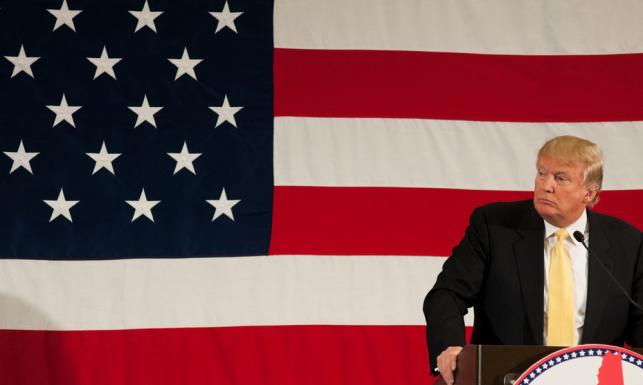Delete your account
 We love to Tweet. We love to share. It appears to be a strategy for change but it isn’t. And we have to accept that.
We love to Tweet. We love to share. It appears to be a strategy for change but it isn’t. And we have to accept that.
These are strange times. We are able to reach millions with a single Medium post but each day a new post supplants the last. Today’s impassioned jeremiad – like this one – is tomorrow’s digital fish wrapper. A CEO can Tweet something noble today and it is gone a moment later. We can spread the word through Facebook but that site’s pernicious systems keeps it from spreading outside of your immediate zone of friends. In the end all we do on social media is akin to a fart in a crowded room – sure to annoy someone nearby but dissipated by the time it reaches the edges.
So I’m saying delete your account and do something.
If you are a programmer and you haven’t contacted your favorite investigative journalists, the folks at ProPublica , or anyone at your local paper, delete your account and do it. Journalists need your technical expertise to secure their devices, set up secure drops, and understand the data coming out of the countless leaks that are sure to come. You are vitally important.
If you’re running a startup delete your account and look up from your laptop. This can be your first effort at corporate philanthropy. Donate to the ACLU. Volunteer to help immigrants assimilate. Send some cash to Trump. I don’t care. Get political. We had a solid decade of inaction. It’s time to delete your account and do something.
If you’re a VC cut ties from members of your class that actively destroy free speech and rant about the coming dystopia. It makes no sense to invest when the world is coming to an end so perhaps you should protect your investments and prevent it?
If you think about tweeting something witty, don’t. Say that witty thing at a protest march or in a city council meeting or at a school board election. Run for local office. This is the moment for insurgent democracy and if you’re at Apple or Google and truly believe in your Burning-Man-equality-for-all fever dream of Silicon Valley then make it happen locally. If you live in a small city lead the hundreds of amazing entrepreneurs in an effort to enact change. If you’re international reach out. It will be individual citizens who change things since most of our governments are now at odds. This second decade of the 21st century has gone aground. We need to tow it to open waters and keep sailing. Delete your account and do something.
Delete your account and build something if you want to fight back. Delete your account and do something if you want to fight back. Delete your account and run for office if you want to fight back. Facebook posts are meaningless. Twitter is a way for us to feel smug at misspelled rants from the White House. Ignore their false produce and read real news from a real source you trust. Pay for media. Understand that journalists are as baffled as you but, thanks to experience, they have the means to tease out truth. But they can’t do it alone.
No matter what side you’re on, no matter how much glee you get in funny memes and clever retorts, delete your account. The world doesn’t exist on your backlit high-resolution screen. It exists a few degrees up and out, out where people are marching, deals are being made, and the world is changing without you.
Delete your account. The world needs you.
Image via IconFinder
© Source: http://feedproxy.google.com/~r/Techcrunch/~3/Afik1gxXmis/
All rights are reserved and belongs to a source media.


 Laws govern the conduct of humans, and sometimes the machines that humans use, such as cars. But what happens when those cars become human-like, as in artificial intelligence that can drive cars? Who is responsible for any laws that are violated by the AI?
Laws govern the conduct of humans, and sometimes the machines that humans use, such as cars. But what happens when those cars become human-like, as in artificial intelligence that can drive cars? Who is responsible for any laws that are violated by the AI? 
 Google CEO Sundar Pichai has outlined his disapproval of the impact arising from Trump’s dangerous, inhumane and short-sighted sweeping immigration order, which imposes for at least 90 days a block on entry to the U. S. for citizens (including valid visa holders) from seven countries, blocks indefinitely refugee admittance from Syria and also caps the total number of refugees allowed to enter the U. S. in 2017 at 50,000, less than half the number that came into the country in 2016. The measure also suspends admittance of all refugees for a period of 120 days.
Google CEO Sundar Pichai has outlined his disapproval of the impact arising from Trump’s dangerous, inhumane and short-sighted sweeping immigration order, which imposes for at least 90 days a block on entry to the U. S. for citizens (including valid visa holders) from seven countries, blocks indefinitely refugee admittance from Syria and also caps the total number of refugees allowed to enter the U. S. in 2017 at 50,000, less than half the number that came into the country in 2016. The measure also suspends admittance of all refugees for a period of 120 days. 
 Seit dem 20. Januar ist Donald Trump der 45. Präsident der Vereinigten Staaten von Amerika. Seit seinem Amtsantritt hat er viele seiner Wahlversprechen bereits in die Tat umgesetzt. Hier eine Übersicht seiner bisher unterzeichneten Dekrete:
Seit dem 20. Januar ist Donald Trump der 45. Präsident der Vereinigten Staaten von Amerika. Seit seinem Amtsantritt hat er viele seiner Wahlversprechen bereits in die Tat umgesetzt. Hier eine Übersicht seiner bisher unterzeichneten Dekrete:
 US-Präsident Donald Trump hat seine Angriffe auf große Teile der US-Medien weiter verschärft. «Die Medien sind eine Schande», sagte Trump in einem am Freitag auszugsweise vorab veröffentlichten Interview mit dem Sender Christian Broadcasting Network. Ein Großteil der Medien sei durch «Unehrlichkeit» sowie «totalen Betrug und Täuschung» geprägt.
US-Präsident Donald Trump hat seine Angriffe auf große Teile der US-Medien weiter verschärft. «Die Medien sind eine Schande», sagte Trump in einem am Freitag auszugsweise vorab veröffentlichten Interview mit dem Sender Christian Broadcasting Network. Ein Großteil der Medien sei durch «Unehrlichkeit» sowie «totalen Betrug und Täuschung» geprägt. 
 TRAVERSE CITY, Mich. — Invasive grass carp have reached three of the Great Lakes and pose a significant environmental risk there, but time remains to prevent them from getting out of hand, according to a scientific analysis released Friday.
TRAVERSE CITY, Mich. — Invasive grass carp have reached three of the Great Lakes and pose a significant environmental risk there, but time remains to prevent them from getting out of hand, according to a scientific analysis released Friday. 
 Jan 27, 2017, 21:24 ET
Jan 27, 2017, 21:24 ET 
 Rzecznik Białego Domu nie podał żadnych informacji na temat treści rozmów.
Rzecznik Białego Domu nie podał żadnych informacji na temat treści rozmów. 

 Światowe linie lotnicze podjęły w sobotę pierwsze decyzje o niewpuszczaniu na pokład pasażerów z krajów muzułmańskich, wymienionych w dekrecie wydanym przez prezydenta USA Donalda Trumpa. Iran, będący jednym z nich, zapowiedział wprowadzenie kroków odwetowych.
Światowe linie lotnicze podjęły w sobotę pierwsze decyzje o niewpuszczaniu na pokład pasażerów z krajów muzułmańskich, wymienionych w dekrecie wydanym przez prezydenta USA Donalda Trumpa. Iran, będący jednym z nich, zapowiedział wprowadzenie kroków odwetowych. 

